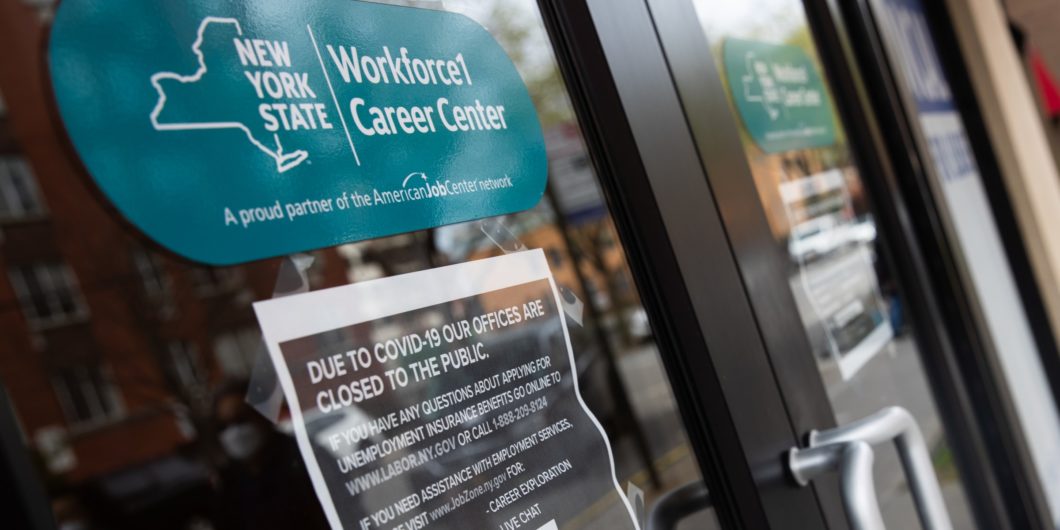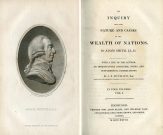Unemployment Benefits and the Real Value of Work
It started with my mother. She was the first person I heard express concern about the supplementary COVID-19 unemployment benefits. As a child of the Depression with a high school diploma and someone who worked more than full-time into her 80s running her own business, she has an instinctive distrust of unemployment insurance that looks too generous. The standard state benefits plus $600 a week from the federal government meets her “too much” test. My mom understands money and is the most dedicated and tireless worker I’ve ever known; when she talks about things like this, I listen.
A number of Republicans, and a few Democrats, have been channeling mom’s concerns in the debates on COVID-19 relief legislation. Their argument is that by paying people more on unemployment than they were receiving in wages, we will cause people to choose the dole over work. But are people—and especially American workers—truly homo economicus, a conception of the human person as one who works only for money and will easily substitute welfare for work? If they are, you wouldn’t notice it by their attitudes and behavior. Americans like and esteem work. We reflexively and relentlessly punish idleness. Given the choice, the overwhelming majority of the citizenry will choose work over welfare every time.
The question arises: if homo economicus is an incomplete explanation of work behaviors, what’s missing from it? Adam Smith, the father of capitalism, summed it up this way in the first sentence of his most important book, the Theory of Moral Sentiments: “However selfish soever man may be supposed, there are evidently some principles in his nature, which interest him in the fortune of others, and render their happiness necessary to him, though he derives nothing from it except the pleasure of seeing it.”
These “principles” in human nature are the mainspring of social life. We instinctively “truck, barter and exchange” in the give and take of the marketplace. This drive to work, trade, and acquire ever-rising levels of prosperity, Smith said, is not about meeting actual material needs, which can be satisfied at a relatively low level, but an effort to show our affluence to our peers. Keeping up with and exceeding the Joneses is an essential part of what drives the capitalist system forward. One study found that money only buys happiness in work up to about $75,000 per year. Once you hit that threshold, the extra pay buys nicer houses, cars, and vacations, but it doesn’t add appreciably to your overall life happiness. It is only a small fraction of humanity that actually prefers Netflix to the stimulation work provides. There is something else about work that drives us out the door in the morning.
To be sure, we need money. But what free people in a free economy need more than money, and are often perfectly happy to sacrifice money for, is meaning; and meaning shows up in some pretty surprising places. There was a delightful news report recently focusing on a sanitation worker. This man, who spends his days picking up and disposing of his community’s waste, loves his job. He was poetic in his excitement, explaining the satisfaction he derives from getting up early in the morning to make his rounds, keeping an exacting timetable, and knowing the essential role he plays in his community. He loves the place where he lives, and, in a way, that place loves him back through his job.
The “invisible” function of work, where the other half of its real value to us lies, is in how it connects us to other people—coworkers and customers—who meet our need for mutual esteem and human warmth. This need is with us from the beginning: Babies deprived of emotional attention and nurture while having their physical needs met can even die of loneliness. The reason the overwhelming majority of American workers will put aside their unemployment benefits—and are already, in some places, demanding to go back to work—is that, having lost the meaning and purpose that work provides, they are bored with sitting at home and crave human contact. They miss the creative outlet of work and, even more, the chance to gather for the spontaneous, casual conversations that feed our social needs.
With an unprecedented national effort, we have temporarily suppressed our instinct to socialize. Polls show the public to be much more worried about reopening the economy too soon rather than too late, despite high levels of economic anxiety. For the time being, workers are acting as homo salus (safety person) rather than homo economicus, taking actions that protect their health and the health of their families while putting economic goals and worries on the back burner. We need to bear this in mind in analyzing why most workers might prefer the bonus to the job at the moment. Is it indolence that’s driving the behavior, or an interplay between the instincts to care for others and protect ourselves?
Human extroversion and mutuality, the indelible core of social and economic life, has been artificially suppressed and will surely reassert itself.
Some members of the knowledge and political classes, analyzing policy solely through the lens of economics, seem to be stuck in the greed-laziness paradigm. They worry the COVID-19 unemployment bonus creates a bad “incentive structure.” Those alert to irony will note most of these analysts are able to socially distance and get a paycheck via telework, which means their policy view boils down to “work as we say, not as we work.” In this frame of understanding, social distance becomes yet one more luxury good that divides the middle and upper classes from those at the lower end of the wage scale.
Of course, there are some who will abuse public generosity and opt for prolonged joblessness, and there are a growing number of employers complaining about having to compete with unemployment benefits that pay above market rate. These concerns are part of our instinctive preferences for work and against dependency, a vestigial remnant of the successful campaign to apply time limits to cash welfare benefits and encourage work among the poor. That policy frame just doesn’t work very well right now. The goal of expanded benefits is a public health strategy designed to encourage Americans to stay home and help slow the spread of illness. It is an exceptional policy for an exceptional time, and it is working as intended.
Normally, we wouldn’t consider anything like the generosity currently being extended to lower-wage workers. A comparatively parsimonious public welfare policy is one of the requirements of an economically dynamic society that fosters work and constrains indolence. In a public health emergency, however, when the stakes include the possibility of viral illness and death, appeals to the principles of the rigors of the free market and charges of renewed welfarism take on a hollow and menacing ring. For those at the bottom of the socio-economic ladder, the efforts of elected officials—the same ones who only reluctantly assemble for legislative business—to reduce COVID-19 unemployment bonuses could easily be taken for a modern aristocracy defending its privileges. The economic lockdown and its attendant policies are not sustainable for long, but neither is a system in which policy is built around the understandings and interests of those whose lives are largely insulated from that which they advocate. It is rather like favoring a military draft—but only for other people’s children.
Rather than falling back on prior, homo-economicus assumptions, I’d like to propose we look at the expanded, temporary federal unemployment benefits as an investment in social solidarity. In the past six weeks, we have grown accustomed to more generous tipping and words of thanks when it comes to restaurant workers, grocery store employees, and other essential employees. These COVID bonuses are a tangible way of saying, especially to those at or near the bottom of the economic ladder, “We value you. Our destinies are bound up in one another. We want to protect and support you.” Free markets are central to classical liberalism but so is love of neighbor.
Finally, it’s important to keep the scale in mind here. The expanded unemployment benefits are estimated to cost $260 billion over four months, which, to be sure, Everett Dirksen would recognize as “real money.” It is, however, just four percent of the over $6 trillion that Congress has (thus far) appropriated and the Federal Reserve has injected via monetary policy to stabilize other sectors including business and finance. Based on the history of the 2008 financial crisis and some of the emerging stories about business abuses of CARES Act spending, we might want to pay more attention to the moral hazards that crop up around those mountains of dollars than the prospect of millions of low-wage workers reaping a temporary windfall from the short-term boost to unemployment benefits.
I think Adam Smith would tell us that social distancing, no matter how necessary in the short term, cannot and will not last. (It is ironic that even social distancing can be understood as an aspect of Smithian mutuality as we seek the happiness of others by staying away from them.) In an uneven, start-and-stop fashion, the social nature and needs of human beings will draw us back to work not just because we have to but because we will be aching to. Taxpayers will demand that those who violate mutuality by abusing unemployment benefits be tracked down and made to resume self-sufficient lives; defending these payments in light of chronic trillion-dollar deficits will be an indefensible burden on future generations saddled with the debt we are accumulating now. At the same time, society will have to begin to grapple with our now-dawning realization that essential workers are essential all the time, not just during disasters. Human extroversion and mutuality, the indelible core of social and economic life, has been artificially suppressed and will surely reassert itself. We will meet again—around the water cooler.


